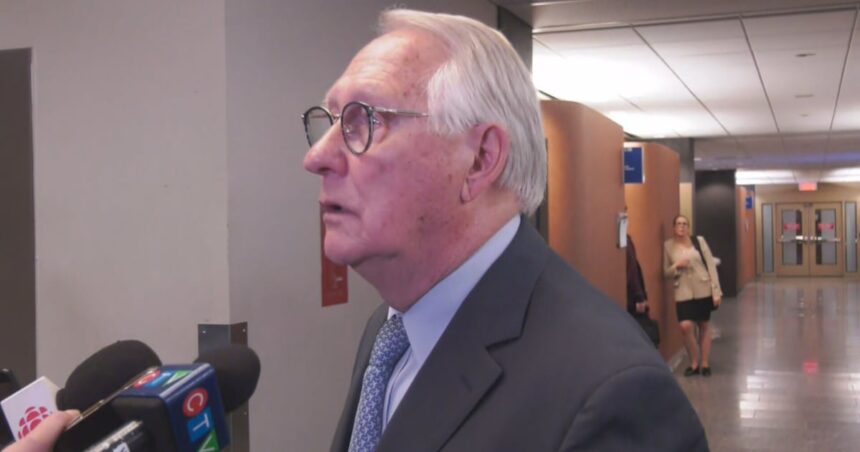As I observed former Montreal mayor Gérald Tremblay shift uncomfortably in the witness box yesterday, the courtroom’s tension was palpable. The man who once commanded our city with confidence now appeared diminished, facing stern judicial rebuke during testimony against his former political aide, Frank Zampino.
“You’re not here to sell your political career,” Superior Court Justice Lyne Décarie admonished Tremblay sharply. The moment crystallized the stark reality of a political legacy now permanently entangled with one of Montreal’s most infamous corruption scandals.
Tremblay, who served as mayor from 2002 until his resignation in 2012, appeared as a prosecution witness in Zampino’s fraud and breach of trust trial. Zampino, once the powerful chairman of Montreal’s executive committee, stands accused alongside businessman Paolo Catania regarding the controversial Faubourg Contrecoeur development project.
The former mayor’s testimony revealed the complexity of Montreal’s political machinery during that era. Tremblay claimed he was kept in the dark about key decisions, painting himself as an unwitting participant in a system that operated beyond his control.
“I delegated authority to people I trusted,” Tremblay testified, his voice occasionally wavering. “The information simply never reached my office.”
Montreal political analyst Marie Desjardins told me the testimony reflects deeper systemic issues. “What we’re seeing is the unraveling of an entire political culture, not just individual wrongdoing,” she explained during our conversation at a café near the courthouse.
The Contrecoeur scandal itself reads like a textbook case of municipal corruption. The land, valued at $31 million, was allegedly sold to Catania’s construction company for just $4.4 million, with prosecutors claiming Zampino orchestrated the sweetheart deal.
Throughout my years covering Montreal politics, I’ve witnessed the scandal’s profound impact on public trust. A recent Léger poll indicated that 67% of Montrealers still believe corruption remains embedded in our municipal governance structures despite reform efforts.
Urban governance expert Professor Jean-Philippe Meloche from Université de Montréal suggests the trial represents a critical moment of accountability. “These proceedings, however painful, are necessary for the city’s institutional healing,” he noted when I interviewed him for context.
The trial itself has progressed with the methodical pace typical of complex fraud cases. Prosecutor Nicole Martineau has meticulously presented evidence suggesting Zampino used his influence to benefit Catania’s firm while concealing his actions from public scrutiny.
Defense attorney Isabel Schurman has vigorously challenged this narrative, suggesting Tremblay’s testimony represents an attempt to deflect blame rather than illuminate truth.
What struck me most during yesterday’s proceedings was the contrast between the grandeur of Montreal’s political ambitions and the mundane mechanics of alleged corruption. Discussions of zoning changes, committee meetings, and procedural technicalities revealed how easily governance systems can be manipulated.
As a lifelong Montrealer who has chronicled our city’s evolution over decades, I find myself contemplating how these events have reshaped our collective identity. The corruption scandals of the 2010s forced a painful but necessary civic reckoning.
Current Mayor Valérie Plante, who campaigned on transparency and ethical governance, has implemented several reforms including strengthened whistleblower protections and enhanced disclosure requirements. “We’ve worked to rebuild trust through concrete actions, not just promises,” Plante stated at last month’s municipal ethics conference.
The courtroom itself reflected Montreal’s distinctive character – proceedings alternated between French and English, with cultural references uniquely understood by locals. During a recess, I overheard attorneys discussing the case’s nuances over espressos at the courthouse café, seamlessly switching languages mid-conversation.
As the trial continues, many Montrealers wonder if justice, however delayed, will provide meaningful closure. Governance advocate Sophie Tremblay from Transparency







